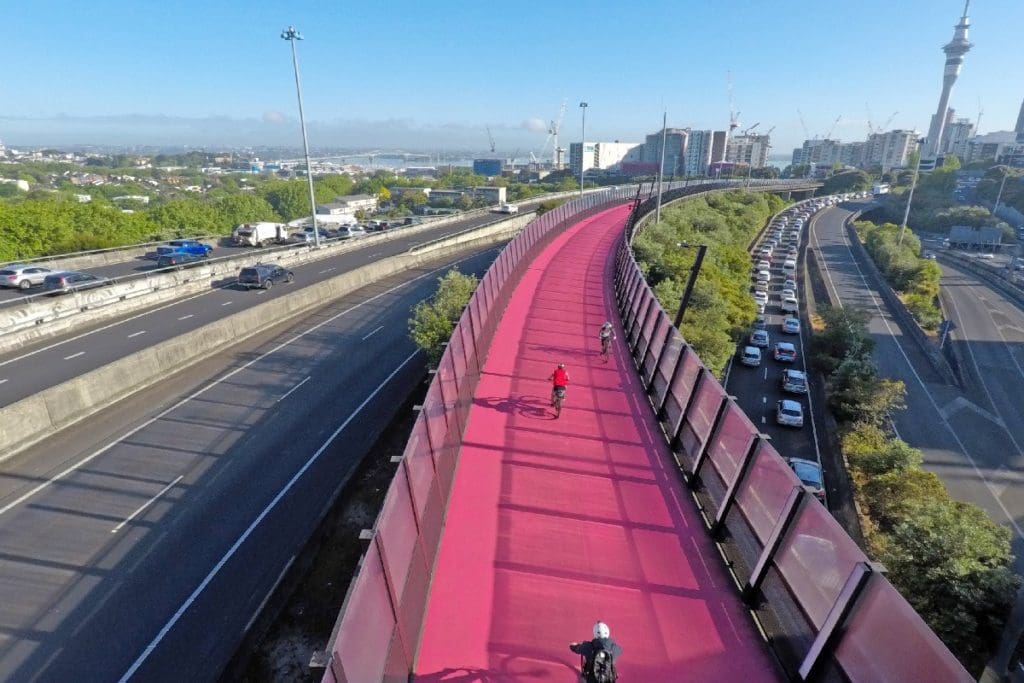E-Bikes Attract More Women – Study Suggests

A new study of electric bike use in New Zealand has found that pedal assistance has acted as an enabler to empower women to ride. Ebikes could be the catalyst for bike retail environments becoming more female friendly.
Part of the reasoning for the shift put forward by the bike shop managers interviewed for the study is a ‘degendering’ of bike technology, where e-bikes in particular are challenging the bike industry’s terminology, tilting away from pointing customers to male or female specific bikes. In other words, the traditional ‘men’s’ diamond frame and ‘women’s’ step-through frame are less delineated in e-bikes where low step-through height is seen as an advantage for both genders, particularly when it comes to urban bikes.
The retailers likewise felt that the effect translated beyond retail, empowering more women first to come in store and latterly to access higher level bike technology. Unfortunately this only rung true with higher income customers, given the high cost of e-bikes.
This feeling that electric bikes were keeping women engaged in cycling was multi-faceted and was attributed by one retailer to the build quality of bicycles typically pitched at women, versus that typical of an electric bike.
A poor quality bike, said the interviewee, leaves women thinking, ‘I’m not sure I enjoy this cycling’, but their cycling experience is based upon a bike that is really, really bad. Electric bikes carried by bike retail stores generally bring forward a higher level of build quality, assistance and thus enjoyment.
Emphasising the difference that technology can make, but also flagging lingering sexism the author writes, “The inferiority of women’s entry-level bike technology is highly evident when visiting local bike stores in Auckland. When buying a new bicycle recently one of the authors (KW) discussed the issue with the retailer, after being unable to find an entry level step-through bike with more than three gears.
“In a hilly, spread out city like Auckland, three gears is likely to be inadequate for all but the very fittest of cyclists. She raised this issue with the retailer, asking him, ‘What happens when women take one of these bikes out and need to ride up a hill?’ He shrugged and said, ‘They use them twice, then put them in the garage and never use them again.’”
There is a sense that with electric bikes the perception at bike retail and with the customer is different. There is no bias on competence when the customer arrives and the discussion does not veer toward such wrongful assumptions, suggests the author.
The surveyed female e-bikers often commented that pedal assistance had improved cycling confidence, removing fears that the rider was holding up a group or a partner. More than the social benefits, women valued the ability to accelerate out of danger when moving in traffic. This led to a greater confidence in taking the lane or opting for routes that had hilly topography. All of this equated to a feeling of being more ‘equal’ road users and also to a consideration of putting a bike to utility and family use.
Separate studies have found that electric bike owners progressively tend to put them to use more at the expense of car trips.
You can see the full paper here. It was authored by Kirsty Wild and Alistair Woodward from the University of Auckland and Caroline Shaw from the University of Otago.
A longer version of this article was first published in Cycling Industry News (UK).
Join the Conversation:
What have you done in your store to encourage sales to women?
